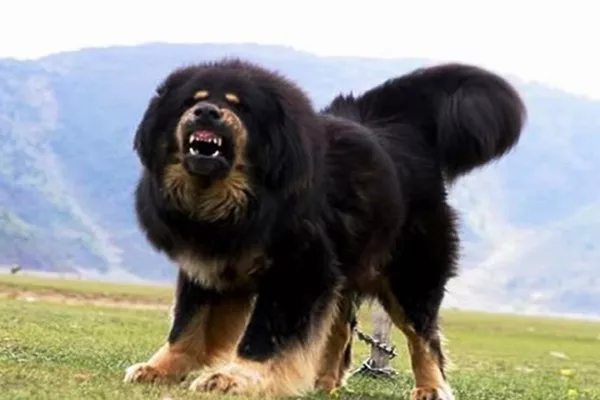The Tibetan Mastiff is a majestic and enigmatic breed, known for its imposing presence and unwavering loyalty. While the Tibetan Mastiff itself is a distinct breed, its ancestry is shrouded in mystery, with contributions from various canine lineages. In this in-depth exploration, we will delve into the breeds that make up the Tibetan Mastiff, shedding light on its rich genetic heritage.
1. The Origins of the Tibetan Mastiff
1.1. Ancient Roots
The Tibetan Mastiff’s origins can be traced back thousands of years to the Himalayan region, where it served as a guardian of monasteries, villages, and livestock. This ancient lineage has left a lasting imprint on the breed’s genetics and temperament.
1.2. Guardian Instinct
The primary role of the Tibetan Mastiff has always been that of a guardian. Its lineage is characterized by dogs capable of fiercely protecting their charges from predators, making them an invaluable asset to the Tibetan people.
2. Ancient Asian Breeds
2.1. The Tibetan Mastiff’s Ancestors
The Tibetan Mastiff’s genetic makeup includes contributions from several ancient Asian breeds, which were selectively bred over generations to create this noble guardian.
2.2. Tibetan Dog Breeds
Tibetan dog breeds like the Tibetan Kyi Apso and the Bhote Kukur are believed to have played a significant role in the development of the Tibetan Mastiff. These ancient breeds shared the same harsh Himalayan terrain and were bred for similar purposes.
3. Influence of Molossian Dogs
3.1. Molossian Hounds
The Molossian hounds, an ancient group of dogs renowned for their imposing size and protective instincts, are considered another major contributor to the Tibetan Mastiff’s heritage.
3.2. Genetic Imprints
The Molossian hounds’ genetic imprints can be seen in the Tibetan Mastiff’s robust physique and protective nature. These attributes have made the Tibetan Mastiff a formidable guardian throughout history.
4. Influence of Central Asian Breeds
4.1. Central Asian Breeds
The Tibetan Mastiff’s genetic lineage extends to the vast and diverse region of Central Asia, where it shares ancestry with breeds like the Central Asian Shepherd Dog and the Alabai.
4.2. Nomadic Heritage
Central Asian breeds were historically bred by nomadic tribes for herding and guarding livestock. These dogs’ nomadic heritage contributes to the Tibetan Mastiff’s adaptability and resilience.
5. The Influence of European Breeds
5.1. European Involvement
While the Tibetan Mastiff’s roots lie in Asia, European breeds have also played a role in its genetic composition, particularly during the breed’s introduction to the Western world.
5.2. Modern Evolution
As Tibetan Mastiffs were brought to Europe in the 19th century, European breeds such as the Mastiff and the Saint Bernard influenced the breed’s modern evolution and standardization.
6. Unique Tibetan Mastiff Traits
6.1. Distinctive Characteristics
The amalgamation of these diverse genetic contributions has endowed the Tibetan Mastiff with its distinctive traits, including a thick double coat, a lion-like mane, and a reserved yet protective temperament.
6.2. Adaptability
The Tibetan Mastiff’s genetic heritage has also equipped it with adaptability, allowing it to thrive in extreme climates and terrains, from the high-altitude Tibetan Plateau to the European countryside.
7. Preserving the Tibetan Mastiff’s Heritage
7.1. Breed Preservation
Preserving the Tibetan Mastiff’s unique genetic heritage is of paramount importance. Breeders and enthusiasts must maintain the breed’s integrity while addressing health concerns that can arise from limited genetic diversity.
7.2. Ethical Breeding Practices
Ethical breeding practices, responsible selection of breeding pairs, and genetic testing are essential to ensure the Tibetan Mastiff’s health and longevity while preserving its ancestral traits.
Conclusion
The Tibetan Mastiff’s genetic heritage is a tapestry woven from the threads of ancient Asian breeds, Molossian hounds, Central Asian herding dogs, and even European influences. This diverse lineage has created a breed of exceptional beauty, strength, and loyalty.


